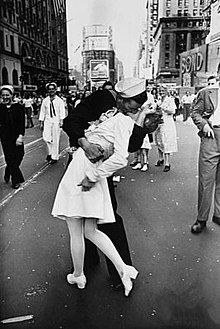Creativity
Writing About Life Experiences Can Boost Well-Being
Memoir writing helps stimulate conversation and counter loneliness.
Posted June 9, 2023 Reviewed by Lybi Ma
Key points
- Memoirs can provide insight into one’s family, clarify experiences, and make public secret thoughts.
- Memoirs are especially beneficial to seniors and the elderly who have memories they wish to treasure.
- Writing about experiences helps stimulate conversations that help deter loneliness.

During the pandemic, when people were spending more time indoors, memoir writing took on a new popularity and heightened importance. An already isolated population, the elderly, became even more lonely because visits from family and friends were restricted. And in the elderly, loneliness is identified as a risk factor for mortality according to the National Center for Chronic Disease Prevention and Health Promotion, Division of Population Health (March 30, 2023).
Even before the pandemic, as early as 2013, Matthew Pantell and colleagues reported on the loneliness factor in the American Journal of Public Health.
“We used data on 16,849 adults from the Third National Health and Nutrition Examination Survey and the National Death Index. Predictor variables were four social isolation factors and a composite index. Socially isolated men and women had worse unadjusted survival curves than less socially isolated individuals. Social isolation predicted mortality for both genders, as did smoking and high blood pressure.” Social isolation is a predictor of mortality comparable to traditional clinical risk factors.
A special key to socialization?
Despite community groups offering friendship get-togethers for music, bingo, and discussion, writing stands out as being beneficial. In “The Health Benefits of Autobiographical Writing: An Interdisciplinary Perspective," Jussi Valtonen posed the question: “Why is writing about life experiences and goals helpful for well-being whereas merely thinking about them is not?”
Citing literary scholars and cognitive neuropsychologists, Valtonen reported agreement that “constructing narratives is an essential mental process through which human beings make sense of their experiences, constructing written or spoken narratives seems to provide a powerful tool for processing conflict, whereas constructing mental narratives does not.” (Journal of Medical Humanities, Dec. 2021)
Memoirs and mini-memoirs are similar to autobiographies. However, unlike autobiographies, which are factual and date-specific, memoirs are creative nonfiction. By writing stories, mini-memoirs, or vignettes in the creative nonfiction genre, writers free themselves from adhering to rigid dates and facts.
Adults and seniors in memoir-writing groups have a twofold advantage. Writing even a one-page mini-memoir creates a memory to treasure. Additionally, discussing the experience in a group setting is a way to engage in conversation with others.
The mini-memoir group
In my work with seniors leading memoir-writing groups, I saw how conflict and disagreements can spark conversations. These often continue even after group meetings end. One of the most successful sessions came about on V-J Day.
After setting up a small poster with a sailor kissing a nurse, 10 octogenarians were given one page to write their thoughts or remembrances of the day.
About 45 minutes later, a discussion session followed. Unexpectedly one usually reticent woman, perked up. She announced to the group: “I have a confession to make. I am the nurse in the photo being kissed by that sailor.”
For a few moments, she was a star who was bombarded with questions and admiration. Suddenly another woman slammed her hand on the table and said, “You were not that nurse. I was there, I worked around the corner. I was in the square where people were gathering almost immediately. I saw this happen.”
The heated discussion that followed drew in other residents with stories that seem to come from deep inside.
There is a lot of online content about memoir writing. Here is a format that I have found successful.
How to write a mini-memoir
- Set aside a quiet time to think about the photograph that conjures up a special memory.
- Express to oneself or others the feelings of the memory.
- Describe the place or people in the photo and what these people mean to us.
- Listen to their words, the way they speak.
- Recreate the dialogue in a few sentences.
- Explain why we are grateful for the memory.
What about sad memories?
If the memory is one of sadness, I tried changing the script. I rewrote my story from a different perspective, without blaming another person for my unhappiness. It helped to retell my story in a way that empowers me.
We see the value of rescripting. “We cannot change the past, but we can change its meaning.” In a randomized controlled trial on the effects of self-help imagery re-scripting on depression, researchers Steffen Moritz and colleagues (2018), wrote in Behaviour Research and Therapy that image rescripting:
-
Improved negative emotions in face-to-face trials.
-
Led to significant improvements in depression and quality of life.
-
Was a useful self-help technique.
In thinking about one’s own story, writing memories for which one is grateful can be helpful, memories to treasure. In a family setting, what one person remembers as humorous, another family member may recall as annoying. Or family members may not remember the event at all. Nonetheless, my memories belong to me. A memoir can be an opportunity to rethink sad events from a positive perspective. Perhaps in the process, hurtful memories can be transformed in a way that gives a certain peace of mind.
References
V-J Day: Victory Over Japan Day. U.S. Department of Defense.




